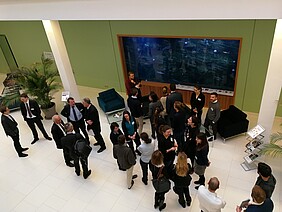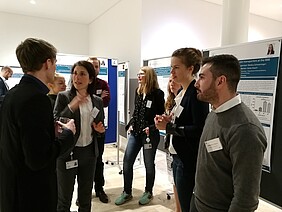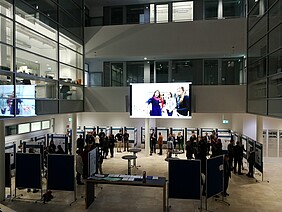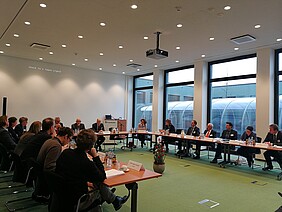We are proud to announce the successful renewal of our GRK1957 "Adipocyte-Brain Crosstalk" with the 2nd funding period starting on November 1, 2018. The German Research Foundation (DFG) will extend the funding for the Lübeck Research Training Group "Adipocyte-Brain Crosstalk" by four and half years, as it stated in the press release on May 7, 2018.
Prof. Dr. Henrik Oster, Director of the Institute of Neurobiology at the University of Lübeck, is the spokesperson of the Research Training Group "Adipocyte-Brain Crosstalk" (GRK1957). "The continuation of the Research Training Group is an important milestone for the quality of Lübeck's doctoral programmes," he said when the DFG announced the funding approval. "It is of strategical importance for the research area Brain, Hormones and Behaviour of our university. This reflects, in particular, the successful interaction between the Sections of Medicine, Natural Sciences and Computer Science/Technology of the University of Lübeck".
Endocrinologists, pharmacologists, neurologists, neuroendocrinologists, neuropsychologists, chronobiologists, biochemists and molecular biologists of the University are involved in the Research Training Group. Their common research topic is the regulation mechanisms of food intake and energy consumption in the central nervous system. This regulation takes place via fat tissue-secreted hormones, so-called adipokines. At the same time, fat tissue morphology and function are influenced centrally via neuroendocrine and autonomic signalling pathways. Disorders of this adipocyte-brain crosstalk are essential to the pathophysiological processes of obesity and its secondary diseases such as diabetes and cardiovascular diseases.
The Research Training Group offers a structured training program in molecular endocrinology and translational obesity medicine for an international group of highly motivated doctoral students. In parallel to their research projects, they receive complementary qualifications through project-specific courses, seminars and summer schools as well as soft skills courses for career development in the molecular life sciences. A unique feature of this Research Training Group is to directly involve international cooperation partners so that they are available as hosts for research stays of doctoral students within the framework of their project.







